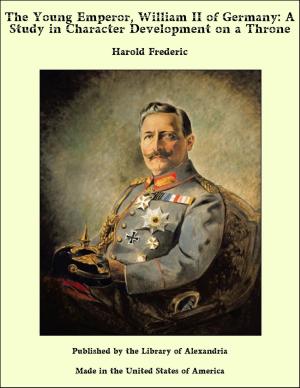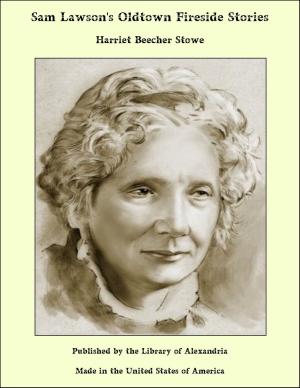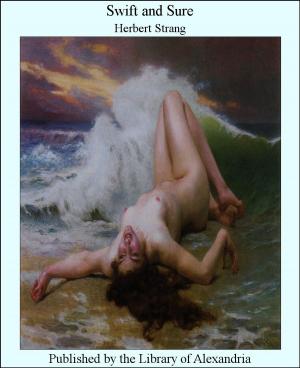Wild Honey: Stories of South Africa
Nonfiction, Religion & Spirituality, New Age, History, Fiction & Literature| Author: | Cynthia Stockley | ISBN: | 9781465584762 |
| Publisher: | Library of Alexandria | Publication: | March 8, 2015 |
| Imprint: | Language: | English |
| Author: | Cynthia Stockley |
| ISBN: | 9781465584762 |
| Publisher: | Library of Alexandria |
| Publication: | March 8, 2015 |
| Imprint: | |
| Language: | English |
It was a six-mule mail-coach that bumped and banged along the rough highroad to Buluwayo, and Vivienne Carlton anathematised the fate that condemned her to travel by it. Cordially she detested the cheerful garrulity of certain of her fellow-passengers, quoting to herself Louis Vance’s satirical mot: “A pessimist is a person who has to live with optimists.” Gladly would she have slain the optimists with whom she was so tightly packed in the hooded body of the cart—for the term “coach” was merely a polite fiction: the affair was neither more nor less than a two-seated Cape cart, with the hood thrown back so that the mules might find the pulling easier and the passengers be more effectively grilled. Two passengers shared the front seat with the driver. Miss Carlton was wedged in the back seat between a perspiring Cape Colonial and a tall lithe man with a deeply tanned complexion and careless light grey eyes, who was as taciturn as herself. No one looking at her sitting there so composedly, closely veiled and gloved, violet eyes quietly fixed on the horizon, her tall khaki-clad figure preserving in spite of its contiguity with strangers an air of dainty aloofness, would have guessed her frame of mind. Her companions had her marked down as an English girl whose beauty and breeding warranted her to put on as much “side” as she liked, and in this they were not very far from the truth. They were also certain that she was the daughter of a lord, and wondered how she came to be travelling alone. The Colonial and the man who came from Kimberley admired her madly without daring to address a word to her; the showy blonde who was going up to be a barmaid in Salisbury, would have given the necklace of diamonds she wore for its safety under her cotton blouse, to possess that aloof manner and gift of remaining silent without being offensive. Only the third man with his careless glance that took in every point of the changing scene of bush, and tree, and kop, had any notion of what was going on behind the composed lovely face of the girl next to him. And the reason he knew was that though he looked like a pirate or a Klondike miner, or anything that was reckless and disreputable he was really of the same world as herself, and could very well guess how the discomfort and hateful intimacy of coach-travelling outraged her. But even he was far from guessing at the hopeless fury, and bitter disdain of her surroundings and the world in general that was rankling in the heart so close to him that he could almost feel its beating.
It was a six-mule mail-coach that bumped and banged along the rough highroad to Buluwayo, and Vivienne Carlton anathematised the fate that condemned her to travel by it. Cordially she detested the cheerful garrulity of certain of her fellow-passengers, quoting to herself Louis Vance’s satirical mot: “A pessimist is a person who has to live with optimists.” Gladly would she have slain the optimists with whom she was so tightly packed in the hooded body of the cart—for the term “coach” was merely a polite fiction: the affair was neither more nor less than a two-seated Cape cart, with the hood thrown back so that the mules might find the pulling easier and the passengers be more effectively grilled. Two passengers shared the front seat with the driver. Miss Carlton was wedged in the back seat between a perspiring Cape Colonial and a tall lithe man with a deeply tanned complexion and careless light grey eyes, who was as taciturn as herself. No one looking at her sitting there so composedly, closely veiled and gloved, violet eyes quietly fixed on the horizon, her tall khaki-clad figure preserving in spite of its contiguity with strangers an air of dainty aloofness, would have guessed her frame of mind. Her companions had her marked down as an English girl whose beauty and breeding warranted her to put on as much “side” as she liked, and in this they were not very far from the truth. They were also certain that she was the daughter of a lord, and wondered how she came to be travelling alone. The Colonial and the man who came from Kimberley admired her madly without daring to address a word to her; the showy blonde who was going up to be a barmaid in Salisbury, would have given the necklace of diamonds she wore for its safety under her cotton blouse, to possess that aloof manner and gift of remaining silent without being offensive. Only the third man with his careless glance that took in every point of the changing scene of bush, and tree, and kop, had any notion of what was going on behind the composed lovely face of the girl next to him. And the reason he knew was that though he looked like a pirate or a Klondike miner, or anything that was reckless and disreputable he was really of the same world as herself, and could very well guess how the discomfort and hateful intimacy of coach-travelling outraged her. But even he was far from guessing at the hopeless fury, and bitter disdain of her surroundings and the world in general that was rankling in the heart so close to him that he could almost feel its beating.















